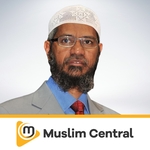Zakir Naik – How to Improve the Economic Situation of the Underprivileged

AI: Summary ©
The caller asks about the economic challenges faced by Bangladesh and how Islam can improve their economic situation. The representative explains that Islam proposes a certain pillar, which is ZAGG, and that every rich Muslim should save over 85 grams of money in charity. They also discuss the potential for a solution to the economy by using a Sharia-compliant bank called a Sharia-compliant investment, but note that the country is currently under a banking system with interest-based banking.
AI: Summary ©
The third part of the question is economic
challenges.
Dr Zakir Naik, what guidance does Islam provide
for addressing economic inequality and poverty in Bangladesh?
How can Islamic principles be applied to improve
the economic situation of the underprivileged in Bangladesh?
The third pillar of Islam, it is Zakat.
The first is Tawheed, second is Salah, third
is Zakat.
And according to the third pillar of Islam
that is Zakat, every rich Muslim who has
a saving of more than the Nisab level,
has a saving of more than 85 grams
of gold, he or she should give 2
.5% of that saving in charity.
It's compulsory Zakat every year, every lunar year.
So in this system, what Islam proposes is
there should be a Baitul Maal or a
Zakat Baitul Maal.
That means Zakat of the full community, of
the full country collected and then if it's
under one entity, under one banner, it will
be more powerful, it will be more effective.
So if you put your Zakat into Baitul
Maal and the economic system is such that
if you put into Baitul Maal, that Baitul
Maal can support various activities.
If it's a centralized Baitul Maal, the amount
collected would be huge and then you can
decide whether you should renovate or you should
make a new complex, where should you invest.
So if the Baitul Maal is big, it
can help the Muslim Ummah and achieve Zakat.
The Qur'an says in Surah Hashar, Chapter
15, Verse 7, it prevents the wealth from
circulating only amongst the rich.
And as far as economy is concerned, Allah
has told us in several places, including Surah
Baqarah, that Muslims should not deal in Rabwah
and interest.
Today, unfortunately, the full world economy is controlled
by Rabwah and therefore, the power of economy
is in the hands of few Jews who
control the banks of the world.
So Islam is against interest-based banking.
Islam is against doing business on interest.
Rabwah is prohibited.
But there is an Islamic alternative, which is
called a Sharia-compliant bank.
And these Sharia-compliant investments etc., we have
to see to it that if we follow
these principles, the economy will be stable.
And the currency also will be powerful.
So follow Qur'an and Sunnah, follow the
economic system, follow the Sharia-compliancy, and Inshallah,
that would be helpful for the country of
Bangladesh.